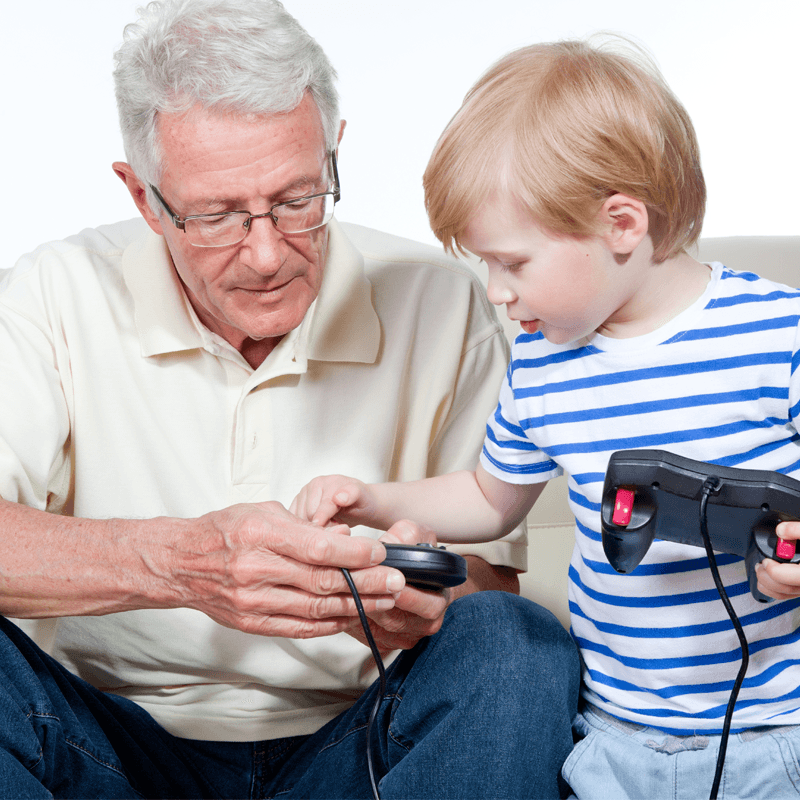Last year one idea attracted a great deal of attention: PC games may be used to develop intellectual — or, more precisely, cognitive — abilities. The idea is probably as old as the games themselves, but, until recently, was viewed a bit sceptically.
And here is why. Intelligence was considered to be primarily hereditary (thus, a permanent attribute) back in 1890s. Despite this, things began to change when scientific papers were released showing how adults intellectual abilities could be boosted through specialised cognitive training.
A number of commercial programs emerged in response to this discovery: the creators of those programs claimed to ‘train the brain’ of young people and maintain the elderly’s intellectual abilities in good shape. Such projects were mostly based on training modules and employed gaming as a main driver.
However, a question arises: can one benefit from video games which already exist and which are not primarily meant as ‘brain trainers?’
What is intelligence?
Now, let’s understand the means of boosting the intelligence. First and foremost, we need to clarify the terms. Psychology describes intelligence as a set of different cognitive abilities. Intelligence can be ‘crystallized’ and ‘fluid’.
Crystallized intelligence is responsible for making proper use of previously accumulated abilities and knowledge. Fluid intelligence is a bit more enigmatic; it is dealing with abstract thinking and serves to solve unknown challenges which do not depend on expertise acquired before. Conundrums are a good example of such challenges.
It is fluid intelligence that wears out year by year, and this is the reason why elderly people have problems mastering new skills like computers, the internet or learning a foreign language. However, thanks to crystallized intelligence, an elderly person still retains their prior experience.
The core of fluid intelligence is the working memory which is responsible for keeping newly obtained information and using it. It is the working memory which mind-training programs try to influence.
Training programs
There are two renowned commercial projects developed for training the working memory — Cogmed and Jungle Memory (both are paid programs), and many others, less familiar to the general audience.
13 ways to anti-age your brain: http://t.co/DUg0rTuceM #Cogmed #LifestyleAU pic.twitter.com/I9swKYspg8
— Cogmed (@cogmed) February 12, 2015
Are all those programs worth their money? After analysing results of various studies it becomes clear that training the working memory really boosts a person’s IQ by 3 or 4 points. According to findings, the effect could be sustainable.
How about combining the useful and the pleasant and replace wearisome mind-twisters with video games? Whereas this approach got a lot of publicity lately, there is no compelling evidence or repetitive results to prove the ability of PC games to influence an adult’s universal cognitive abilities.
At best, we may state that specific skills obtained while gaming can be applied with benefit in similar activities in real life. At the same time we should acknowledge that mainstream popular games are unlikely to make you smarter and more capable in anything beyond gameplay.
Good for the elderly
Keeping oneself in a good shape at older age is another thing, though. And here is where video games bask in a spotlight. Moreover, it has been scientifically proven!
As part of the research, elderly people aged 60-85 exercised their abilities in a simple purpose-built car simulator — NeuroRacer. The core feature of NeuroRacer is a dual task — the gamer should drive a car and press keys in response to signs appearing on the screen, simultaneously.
In a month’s time elderly gamers were able to play better than their 20-year-old untrained counterparts and boosted their working memory and attention. And, most notably, this effect was very sustainable — brain zones which were trained during the experiment remained more active throughout 6 month following the project.
Armed with this principle, Akili Interactive Labs developer a 3D game for tablets, Project: EVO, which might be officially certified by US’ FDA (Food and Drug Administration) committee.
It may happen that by the time today’s youngsters become elderly, purpose-built mind-training games will be widely use in healthcare.
Can Video #Games Make You Smarter? Probably
Tweet
You don’t have to wait, though. Such treatment is already available to you and your family, it the game does not have to be ‘medically-proven’. Several clinical researches claim popular video games might be beneficial for the elderly people and children with cognitive disorders.
So, should you notice you beloved granny has become a bit more absent-minded, you can help the case by switching off TV program, giving her a joystick and letting her play a video game.
 cognitive abilities
cognitive abilities


 Tips
Tips